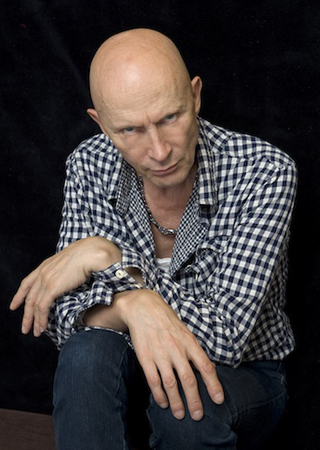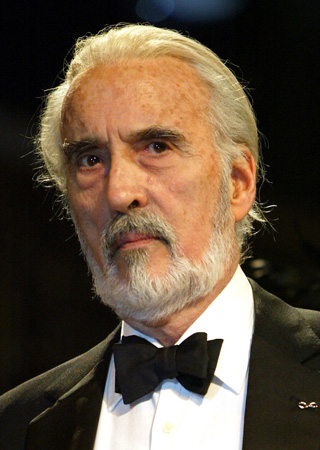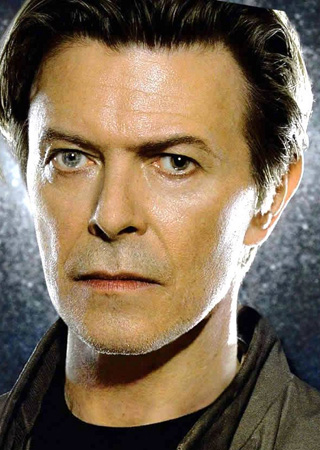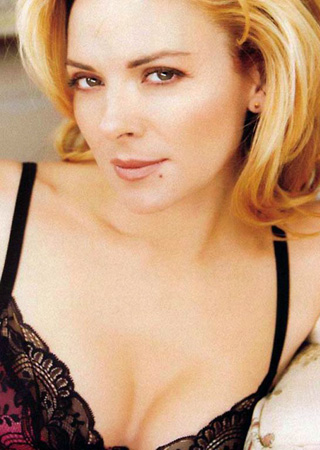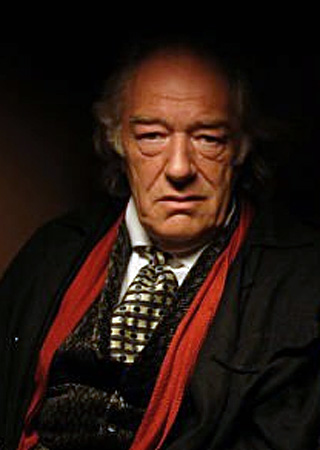Michael Gambon
“Brando was wonderful. All he did was f*** about all day and tell jokes” (Times, 2010)
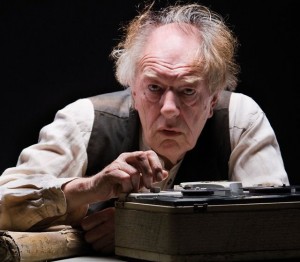
When The Singing Detective came out, I was transfixed. It was, and I suspect still is, quite simply the best and most original TV drama ever produced, and Michael Gambon was brilliant in it. So it was a huge pleasure to meet him Dublin, where he talked about acting, religion, fathering kids in his late ‘60s, and nearly dying, twice. And I don’t mean on stage.
Sir Michael Gambon, or “The Great Gambon” as Ralph Richardson used to call him, wears his greatness lightly, like the rumpled overcoat he sports in Dennis Potter’s peerless TV drama The Singing Detective. “I’ve got a terrible cold,” he apologises as we meet in Dublin’s historic Gate Theatre, and blows into a tissue by way of illustration. “Had to cancel our rehearsals today.”
It doesn’t slow him down long. Painfully shy by nature, which he reckons is why he became an actor, he nevertheless wears white and pink striped socks under his sober suit. And if it takes half an hour or so to gain his confidence, that famously sonorous voice is soon in full flow.
He loves to tell how, when he auditioned for Sir Laurence Olivier at the newly formed National Theatre, he dared in his ignorance to recite Richard III, then tore his hand open on a nail before he could begin. He and his fellow spear-carriers were in awe: “We used to know if we walked at a certain time along a certain corridor at the Old Vic, we’d pass him. ‘Evenin’ Sir!’ ‘Hello.’ Then we’d present ourselves at the stage door when he was leaving after Othello and come out after him, past all the people with their autograph books, as though we were his friends.”
He reserved similar adulation for Robert De Niro. A notorious prankster, Gambon used to install a photo of the Hollywood star in his dressing room wherever he performed, signed: “To Mike, best wishes and love forever. Bob.” Gambon, of course, wrote it himself. But four years ago the dream became reality when De Niro directed him in The Good Shepherd.
“I was walking down St Martin’s Lane with Robert de Niro, on a busy Saturday night, and you walk as though you’re his mate, you know. There were a few of us, and he said we were going to Sheekey’s. I said, ‘You won’t get in there without booking.’ Ha ha! To De Niro! He looked at me as though I was mad. Packed Saturday night, he walked in, and suddenly there was a big table, cleared!”
De Niro is just one of “The Three Os” Gambon has worked with: Pacin-o and Brand-o being the other two. “Ooh, Brando was wonderful. All he did was f**k about all day and tell jokes. He pretended one day he didn’t know what ‘Action’ meant. And the First Assistant Director was terrified of him, it was like meeting God! And he said, ‘Um, oh, you have to start acting when I say that.’ And Brando said, loftily, ‘I haven’t acted for about 30 years, and I don’t intend to start now!’ Ha ha haaaah!”
When Gambon spins an anecdote, his surprisingly long and elegant fingers weave the story into a tapestry of air. They are craftsman’s fingers: trained as an engineer, like his father before him, he likes to repair cars and watches, and does intricate engraving and inlay work on the antique guns that he collects at huge expense – that’s where the cheques go from playing Harry Potter’s Dumbledore, or the villain in the forthcoming Christmas episode of Doctor Who. For a particularly choice reminiscence, such as how Top Gear named a section of race track “Gambon’s Corner” after he took it on two wheels, or how Kenneth Macmillan offered him the priest’s role in the Royal Ballet’s Romeo and Juliet (sadly Macmillan died two weeks later, and Gambon’s dream to be the first person in the company with size 13 feet died with him), he’ll leap up and use his whole body.
Shorter than you’d expect, Gambon is still an imposing physical presence despite his 69 years. Which, whether by coincidence or design, is exactly the age he is called upon to play in Krapp’s Last Tape, one of Samuel Beckett’s most autobiographical plays which transfers to London’s West End this week.
The script is just eight pages long, the production just under an hour. For the first 20 minutes, Gambon does not speak at all. It’s perhaps the role he was born to play, even if he had to wait 69 years to play it: the perfect combination of silent physicality and vocal mastery, of pathos and black humour.
Krapp, a writer who never achieved the literary success he once hoped for, celebrates his 69th birthday in solitude, as he has for decades, by recording his thoughts on tape. But he also plays back the tapes from previous birthdays, notably his 39th, when he’s forsaken the love of his life for the art that someday, a day that clearly now will never come, could make him immortal.
“I’ve never seen Krapp’s Last Tape,” says Gambon, “not even when Harold [Pinter] recently did it, sadly, so I don’t really know how it’s meant to go! But whatever I’m doing seems to be right. I’m told I do play him more frail, perhaps with more pathos than others. He’s near death, you can tell from the title, and if you’re big and bulky, like me, you don’t walk well. So I stagger around a bit, my hair askew.”
He hunches into himself as he speaks, suddenly looking every one of his 69 years. It’s a painful role for an actor coming to terms with his own mortality. On Boxing Day 2008, Gambon reduced mourners to tears with a reading at his friend Harold Pinter’s funeral. And earlier this year he had to pull out of playing the poet WH Auden in The Habit of Art, a part written specially for his saddlebag face and honeyed voice by Alan Bennett, due to a major medical malfunction.
“I basically had a leak of blood, inside me. You just go… ‘boom’.” His whole body slumps limp and lifeless in his chair. “Then you revive and they put you on a drip, they put microcameras up your bum and down your throat, and you go home, and three days later, ‘bfffff…’ again. They could never find out what it was, and I’m all right now, but it was very annoying.”
That’s something of an understatement, though one typical of Gambon. He’s the same when dredging up his first brush with death, as an eight-year-old growing up in Camden, North London. He was a solitary child, with just one best friend, Kevin, a quiet Asian boy with whom he spent his Saturdays breaking into London Zoo and fishing in the canal. They would take the spokes out of a bicycle wheel, tie a burlap sack to the rim, put half a loaf of bread in the centre, and lower it into the water. The gudgeon fish would feed, you’d slowly raise the sack – Gambon’s nimble fingers mime the scene, rendering his words superfluous – and they would flog the trapped fish as bait.
One day, Gambon reveals almost as an afterthought, he fell in. And in those days, inner-city children never learned to swim. “I just remember looking up through the water at the sky, and seeing all the colours of blue. A man dived in from the bridge – I never saw him again – and dragged me out. I’d certainly be dead otherwise. I don’t remember any fear, I just remember being lifted out into the air, and placed on to the bank. I stayed there till I dried. Then we went to the zoo, went home, and never told anyone.”
It was, without being too fanciful, his first glimpse that there was something beyond the self. Raised Roman Catholic, he became a dedicated altar boy, up for mass at six in the morning, but found it was the spectacle, the ritual, the dressing up that moved him more than religion, and credits that for his move on to the stage aged 19 despite never having even seen a play. He thinks it’s a terrible shame that the Catholics abandoned Latin mass – though he was told off for changing the words from “mea culpa, mea maxima culpa” to “me a cowboy, me a Mexican cowboy” – and would love to be accorded an audience with the Pope on his visit this week. Nearly as much as he would like to meet Curb Your Enthusiasm’s Larry David.
Our allotted time is long up. Gambon has already batted away questions about his late brother and his tangled love life – ten years ago he fell for Philippa Hart, a set designer roughly the same age as his son, though he has only half left his wife – with a curt “I don’t talk about that.”
But the sun crosses his weathered face when asked about the two small sons he’s recently fathered with Hart, aged three and one. “I’ll just say this. I have two little boys, one is called Tom and one is called Will, and I just… love them. I can’t believe it. They make me laugh. I said to Tom the other day, and I’m sorry but this is a bit rude, I said ‘what’s that?’ And he said, ‘That’s a Lego fireman.’ I said ‘What’s his name?’ And he said, ‘F**khead.’ Ha ha ha! ‘F**khead’! This child is three! He’s already picked it up from kids at school. That really makes me laugh. They are life-enhancing, aren’t they? And Tom’s name, when he’s playing a fireman, is Elvis.”
Clearly Tom’s already picked up his dad’s gift for invention. We share a last cigarette outside the theatre, the Great Gambon and me – let the record show, since Gambon says that he would otherwise get into big trouble, that he absolutely did not light up a crafty fag in the Green Room an hour before – and he starts to tell me about how he drove a car up this busy Dublin highway, O’Connell Street, when he was just nine years old…
But the lost photographer breathlessly intervenes, with only five minutes left in which to get his shot. That story will have to wait for another journalist’s tape. Perhaps on Gambon’s 79th birthday.
Krapp’s Last Tape plays twice nightly at the Duchess Theatre, Sep 15-Nov 20, 08444 124659, www.krappslasttape.co.uk

